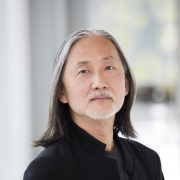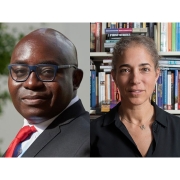Marija Drndić Makes Advance in Nanotech Gene Sequencing Technique
Finding more efficient ways to accurately sequence genes is a top research priority right now. Associate Professor of Physics and Astronomy Marija Drndić is developing a new method that promises to be efficient in both the actual sequencing and in the manufacturing and stability of the tools to do so.
In this technique, known as DNA translocation measurements, strands of DNA in a salt solution are driven through an opening in a membrane by an applied electric field. As each base making up the strand passes through the pore, it blocks some ions from passing through at the same time; amplifiers attached to the nanopore chip can register the resulting drop in electrical current. Because each base has a different size, researchers hope to use this data to infer the order of the bases as the strand passes through.
While many researchers are using cutting-edge materials like graphene to construct nanopores, Drndić and her colleagues are working with silicon nitride. Unlike graphene, which is hydrophobic and therefore unstable, treated silicon nitride is hydrophilic and has readily allowed DNA translocations. And while their membrane is thicker, silicon nitride pores can approach graphene in terms of thinness due to the way they are manufactured. These solid-state nanopores can also more easily be shipped and integrated with other electronics than previous, protein-based nanopore devices.
Drndić’s team includes graduate students Kimberly Venta and Matthew Puster and post-doctoral researchers Gabriel Shemer, Julio A. Rodriguez-Manzo, and Adrian Balan. They collaborated with Jacob K. Rosenstein of Brown University and Kenneth L. Shepard of Columbia University. Their results were published in the journal ACS Nano.
The research was supported by the National Science Foundation, the National Institutes of Health, and Penn’s Nano/Bio Interface Center.
Read the full story here.





